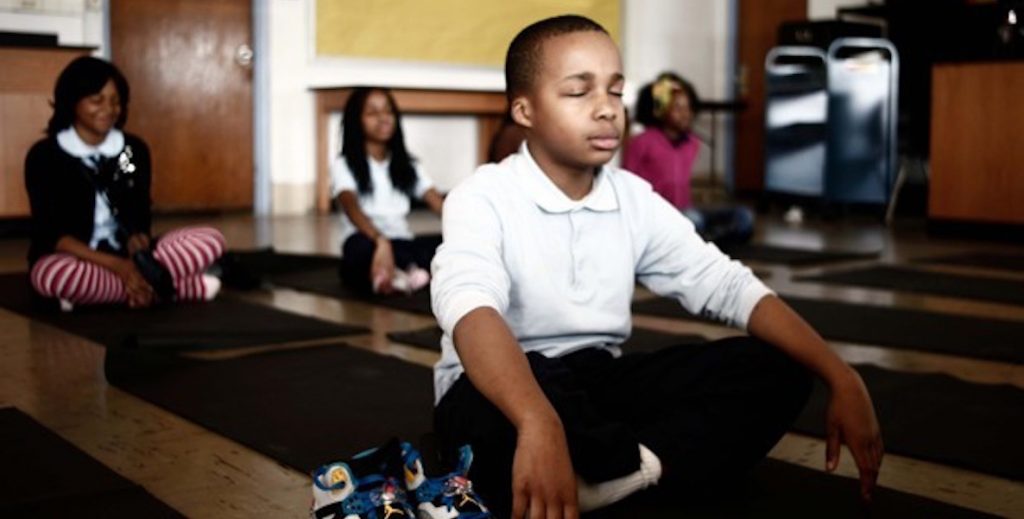Poverty has detrimental effects on children’s cognitive and emotional development. With a high percentage of students affected by the stresses of growing up in unstable or underprivileged environments, Robert W. Coleman Elementary School in Baltimore sees a lot of student disciplinary issues. Traditional methods of punishment haven’t resulted in any significant reductions in these incidents, so the school tried something new.
The school has replaced traditional punishment deterrents for misbehavior with mindfulness counseling. In return, the school has seen success in reducing suspensions of its underprivileged students. Previously entrenched in a system of vicious cycle of disruption and punishment, students are responding well to yoga, reflection, and breathing exercises that have replaced the silent suffering of traditional detention. In the “Mindful Moment Room,” students speak with a counselor, and learn to manage their behavior. Since mindfulness counseling has been implemented, students have demonstrated the ability to engage in peaceful conflict resolution and curb their impulsive instincts. Even in high stress situations, students are more capable at exercising emotional restraint.
This mindfulness approach isn’t just working in Baltimore. Mindfulness programs in the Bay Area and New York City have also cited success. And a Stanford University study revealed a significant correlation between alleviation of PTSD symptoms among students and mindfulness practices.
Read the full story here (via City Lab)
Here’s what else we’re reading:

